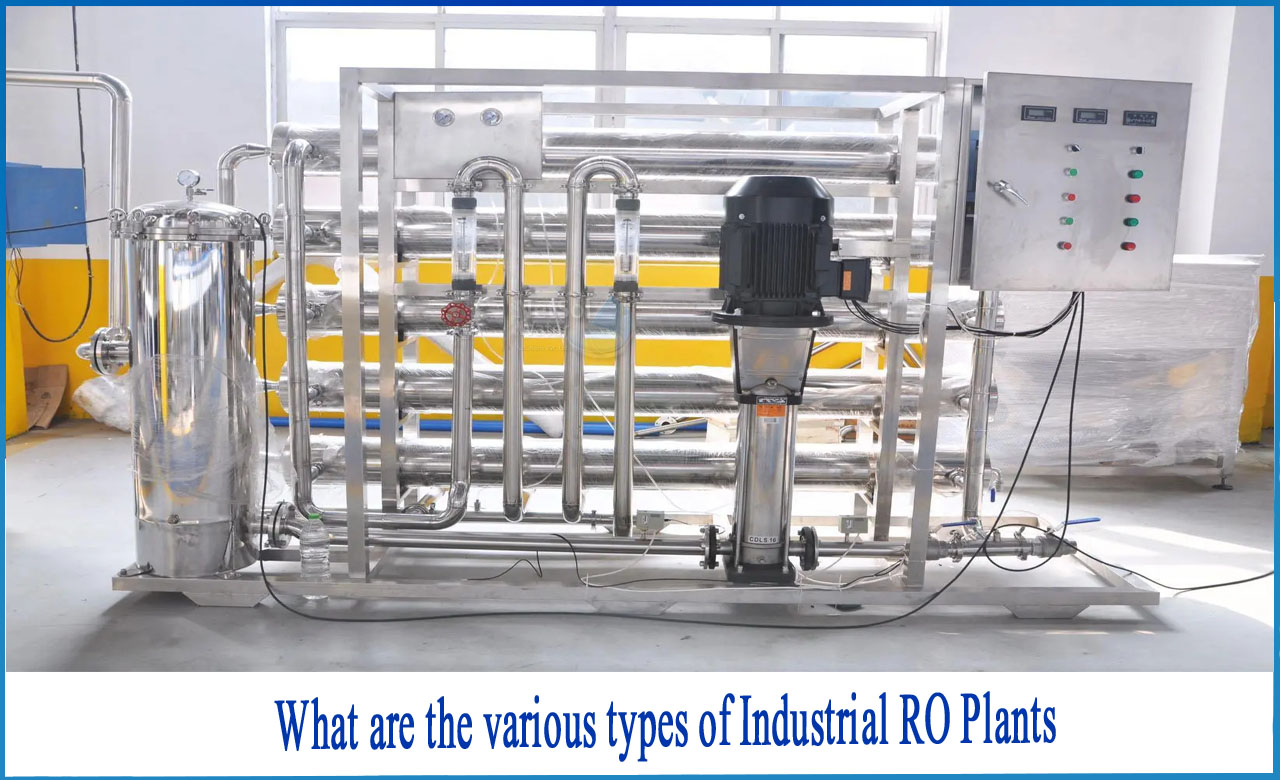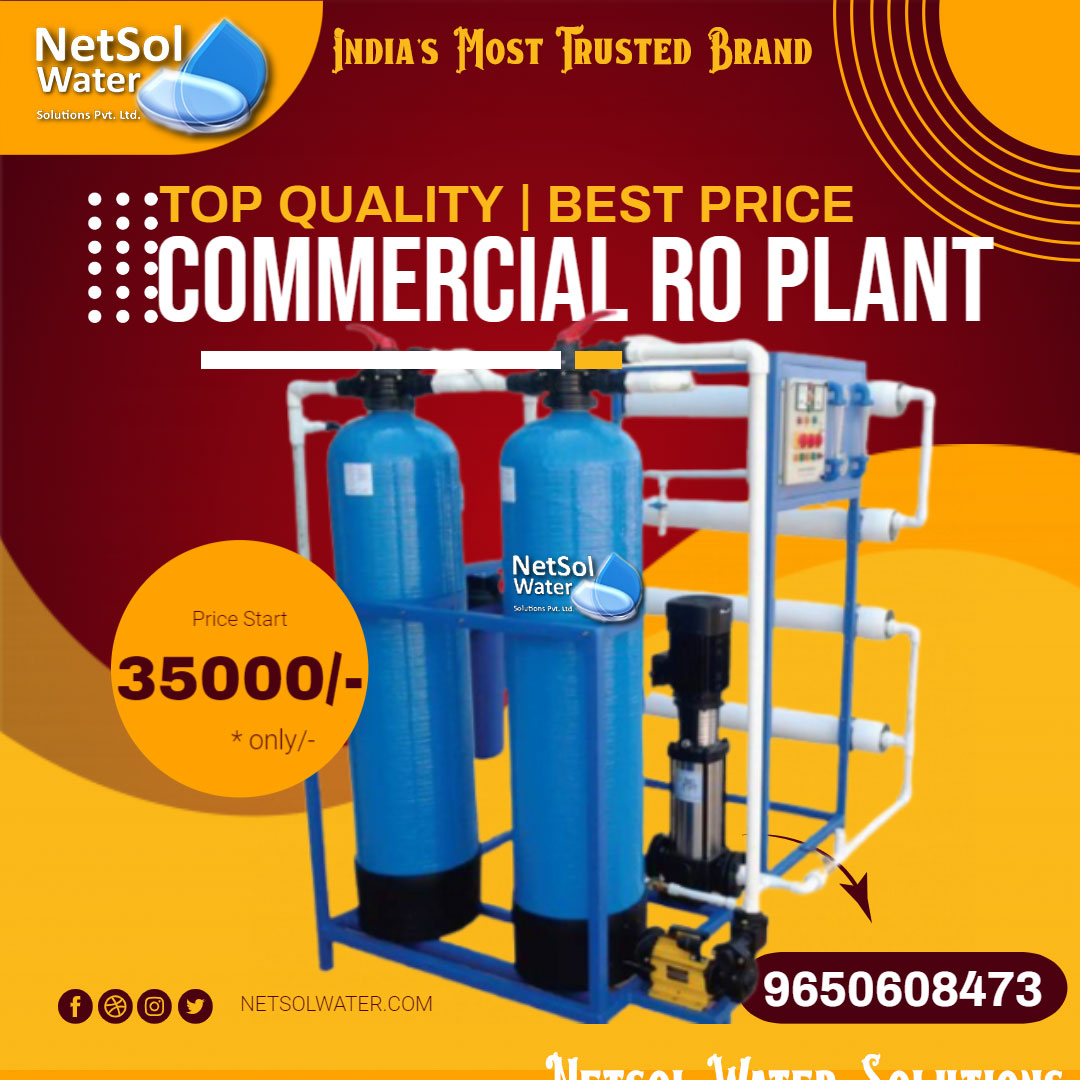What are the various types of Industrial RO plants?
Reverse osmosis is the process of moving a solvent through a membrane from a high solute concentration to a low solute concentration by applying a pressure larger than the osmotic pressure.
Industrial RO Plants
An Industrial Reverse Osmosis (RO) Facility is a water treatment plant that uses the reverse osmosis process to remove dangerous compounds and pollutants from water. The method cleans contaminated water and turns it into pure water that may be used in a variety of industrial applications.
Working of an Industrial RO plant
External pressure is given to the water with the highest concentration of dissolved ions, pushing the water to flow in the opposite direction through the semipermeable membrane. The dissolved ions and suspended solids are left behind.
The water that passes through the semipermeable membrane is known as permeate, or well-treated product water. The reject, brine, or concentrate water is the water that remains behind the membrane after the dissolved and suspended solids have been removed. This is how an industrial RO system operates.
Types of Industrial RO plant
Depending on the needs of the client, different types of Industrial RO Plants are available.
i) On the basis of working, industrial RO Plants are available in two types:
A: Fully automatic:A fully automatic industrial RO plant produces more water at a faster rate. They are pneumatically operated and mechanically operated, ensuring accuracy in washing and filling.
B: Semi-automatic:Manual washing is required for semi-automatic industrial RO plants.
ii) On the basis of water inflow and outlet, there are two types of RO systems:
A: RO with a single pass:Single-pass RO systems concurrently produce permeate water (product) and reject water (high TDS).
B: Double pass RO: When the permeate water is fed into another reverse osmosis machine, it provides more pure water with lower TDS. When the concentrate or reject stream is fed into another RO system to recover reject water, it is referred to as a two-stage or double-stage RO plant.
iii) On the basis of the material used in their construction, RO plants can be divided into two categories:
A: Reverse Osmosis Systems from FRP:FRP membrane housing, carbon and sand filters, pipes, and tanks are typical components of Reverse Osmosis systems. When used for both drinking and processing water, these are equally effective.
B: Reverse Osmosis Systems from SS: Except for the membrane, all of the RO components in the SS Reverse Osmosis plant are composed of Stainless Steel. The tanks, like the SS RO systems, are composed of stainless steel.
Conclusion
The utilization of Industrial RO plants across sectors is expected to grow as the advantages and benefits become more apparent. It carries less dangers, is more efficient, cost-effective, and ecologically friendly, and requires little upkeep.
What can we offer?
Netsol Water Solutions specializes in reverse osmosis systems for a wide range of industrial and commercial applications.We develop a wide range of industrial reverse osmosis units to satisfy the stringent process requirements.Our industrial reverse osmosis plants are meticulously customized and configured to meet the precise requirements of the output water, which range from simple drinking to specific applications such as food processing, medicines, and boiler feeding.




